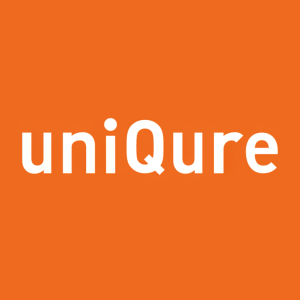uniQure Announces Dosing of First Patient in Phase I/II Clinical Trial of AMT-162 for the Treatment SOD1-ALS
Rhea-AI Summary
uniQure N.V. (NASDAQ: QURE) has announced the dosing of the first patient in the Phase I/II clinical trial of AMT-162 for the treatment of SOD1-ALS, a rare inherited form of amyotrophic lateral sclerosis. The EPISOD1 trial is a multi-center, open-label study with three dose-escalating cohorts, designed to assess the safety, tolerability, and exploratory efficacy of AMT-162.
AMT-162 is an AAVrh10-based gene therapy that aims to knock down the expression of mutated SOD1 protein, which is toxic to motor neurons. The therapy, administered intrathecally as a one-time treatment, has received Orphan Drug status and Fast Track designation from the FDA.
The trial will be conducted in the United States, with four active sites and plans to activate seven more by Q1 2025. It will measure neurofilament light chain and SOD1 protein levels as exploratory efficacy markers.
Positive
- First patient dosed in Phase I/II clinical trial for AMT-162
- AMT-162 granted Orphan Drug status and Fast Track designation by FDA
- Potential for one-time dosing with differentiated efficacy profile
- Expansion to 11 trial sites planned by Q1 2025
Negative
- None.
News Market Reaction – QURE
On the day this news was published, QURE declined NaN%, reflecting a moderate negative market reaction.
Data tracked by StockTitan Argus on the day of publication.
LEXINGTON, Mass. and AMSTERDAM, Oct. 15, 2024 (GLOBE NEWSWIRE) -- uniQure N.V. (NASDAQ: QURE), a leading gene therapy company advancing transformative therapies for patients with severe medical needs, today announced that the first patient has been dosed in the Phase I/II clinical trial of AMT-162 for the treatment of amyotrophic lateral sclerosis (ALS) caused by mutations in superoxide dismutase 1 (SOD1), a rare, inherited and progressive motor neuron disease. EPISOD1 is a Phase I/II multi-center, open-label trial being conducted in the United States with three dose-escalating cohorts assessing the safety, tolerability and exploratory signs of efficacy of AMT-162 in individuals with SOD1-ALS.
“We are pleased to announce the first patient dosing of AMT-162, our investigational gene therapy for the treatment of SOD1-ALS, a debilitating, degenerative and fatal disease,” stated Walid Abi-Saab, M.D., chief medical officer of uniQure. “The start of this trial marks the advancement of our third gene therapy program into the clinic with this trial design, continuing our goal of rapidly generating proof-of-concept data using well-established biomarkers in order to bring treatments to patients as quickly as possible. We believe our novel AAV-based gene therapy candidate can deliver on the convenience of one-time dosing with the potential for a differentiated efficacy profile that is needed for such a devasting disease.”
AMT-162 is an investigational AAVrh10-based gene therapy that expresses a miRNA designed to knock down the expression of the mutated SOD1 protein. Patients with SOD1-ALS express a misfolded SOD1 protein. This misfolded protein is toxic to motor neurons causing degeneration which, over time leads to muscle weakness, loss of function and eventually death. AMT-162 may offer a novel one-time, intrathecally administered approach to slowing or halting the progression of SOD1-ALS. AMT-162 has been granted both Orphan Drug status and Fast Track designation by the U.S. Food and Drug Administration.
The EPISOD1 Phase I/II clinical trial of AMT-162 will be conducted in the United States. The multicenter, open-label trial consists of three cohorts with up to four patients each receiving a short course of immunosuppression prior to and after an intrathecal infusion of AMT-162. The trial will explore the safety and tolerability of AMT-162 and will assess exploratory signs of efficacy by measuring neurofilament light chain, a biomarker of neuronal damage, and SOD1 protein. There are currently four active sites in the U.S. with plans to activate seven additional sites by the first quarter of 2025. Additional details are available on www.clinicaltrials.gov (NCT06100276).
About Amyotrophic Lateral Sclerosis (ALS) caused by mutations in Superoxide Dismutase 1 (SOD1)
SOD1-ALS is a rare, progressive and fatal neurodegenerative disease that results in the loss of motor neurons in the brain and spinal cord. As ALS progresses, individuals experience muscle weakness and atrophy causing them to lose the ability to move their arms and legs, speak, swallow and eventually breathe, causing respiratory failure. Based on a 2021 study in Neuroepidemiology, there are an estimated ~170,000 individuals with ALS globally with SOD1 mutations representing
About uniQure
uniQure is delivering on the promise of gene therapy – single treatments with potentially curative results. The approvals of uniQure’s gene therapy for hemophilia B – an historic achievement based on more than a decade of research and clinical development – represent a major milestone in the field of genomic medicine and ushers in a new treatment approach for patients living with hemophilia. uniQure is now advancing a pipeline of proprietary gene therapies for the treatment of patients with Huntington's disease, refractory temporal lobe epilepsy, ALS, Fabry disease, and other severe diseases. www.uniQure.com
uniQure Forward-Looking Statements
This press release contains forward-looking statements. All statements other than statements of historical fact are forward-looking statements, which are often indicated by terms such as "anticipate," "believe," "could," “establish,” "estimate," "expect," "goal," "intend," "look forward to", "may," "plan," "potential," "predict," "project," “seek,” "should," "will," "would" and similar expressions. Forward-looking statements are based on management's beliefs and assumptions and on information available to management only as of the date of this press release. Examples of these forward-looking statements include, but are not limited to, statements regarding the availability of proof-of-concept data in the Company’s open-label U.S. Phase I/II clinical trial for SOD1-ALS; the effectiveness of the EPISOD1 trial design; and the potential efficacy profile of AMT-162 through one-time administration with the ability to slow or halt the progression of SOD1-ALS. The Company’s actual results could differ materially from those anticipated in these forward-looking statements for many reasons. These risks and uncertainties include, without limitation, risks associated with the clinical results and the development and timing of the Company’s programs; the Company’s interactions with regulatory authorities, which may affect the initiation, timing and progress of clinical trials and pathways to approval; the Company’s ability to continue to build and maintain the company infrastructure and personnel needed to achieve its goals; the Company’s effectiveness in managing current and future clinical trials and regulatory processes; the continued development and acceptance of gene therapies; the Company’s ability to demonstrate the therapeutic benefits of its gene therapy candidates in clinical trials; the Company’s ability to obtain, maintain and protect its intellectual property; and the Company’s ability to fund its operations and to raise additional capital as needed. These risks and uncertainties are more fully described under the heading "Risk Factors" in the Company’s periodic filings with the U.S. Securities & Exchange Commission (“SEC”), including its Annual Report on Form 10-K filed February 28, 2024, its Quarterly Reports on Form 10-Q filed May 7, 2024 and August 1, 2024, and in other filings that the Company makes with the SEC from time to time. Given these risks, uncertainties and other factors, you should not place undue reliance on these forward-looking statements, and the Company assumes no obligation to update these forward-looking statements, even if new information becomes available in the future.
| uniQure Contacts: | |
| FOR INVESTORS: | FOR MEDIA: |
| Chiara Russo | Tom Malone |
| Direct: 617-306-9137 | Direct: 339-970-7558 |
| Mobile: 617-306-9137 | Mobile: 339-223-8541 |
| c.russo@uniQure.com | t.malone@uniQure.com |
This press release was published by a CLEAR® Verified individual.








